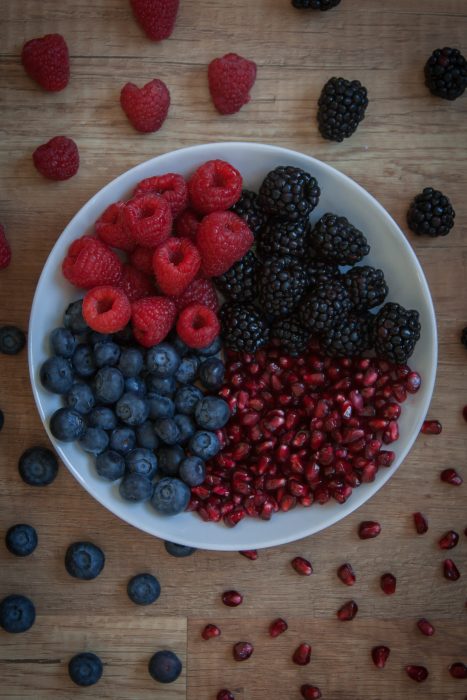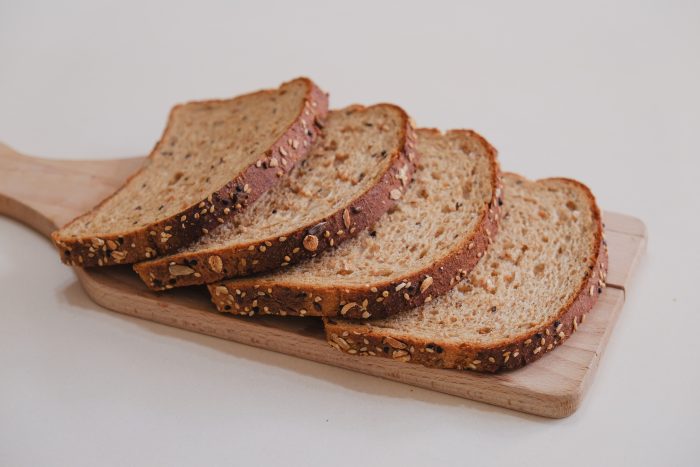In part 1 of this article, we took a look at the role vitamins play in the function of our bodies and why it was important to ingest a wide range of different micronutrients for optimal health and performance. In part 2, we’re going to take a look at what are generally considered the 3 most crucial vitamins for athletes.
As discussed in Part 1, ALL micronutrients play key roles in optimal functioning of our bodily systems. There are 3 vitamins however, that athletes and very active exercisers are frequently found to be deficient in – they are: Vitamin D, Vitamin C, and the B Vitamin Complex.
Vitamin D
 Vitamin D plays a crucial role in bone health and muscle function, both of which are important for athletes. Adequate vitamin D levels can help improve muscle strength and reduce the risk of injuries. Vitamin D is also necessary for the absorption of calcium, making it essential for bone health – in addition, it plays an important role in immune function and reducing inflammation.
Vitamin D plays a crucial role in bone health and muscle function, both of which are important for athletes. Adequate vitamin D levels can help improve muscle strength and reduce the risk of injuries. Vitamin D is also necessary for the absorption of calcium, making it essential for bone health – in addition, it plays an important role in immune function and reducing inflammation.
In recent years, more research has been done on the consequences of vitamin D deficiency in athletes. It has been shown that low levels can decrease physical performance and increase the incidence of stress fractures. The RDA was increased from 400 IU to 600 IU in 2010 as more information about the prevalence of deficiency and its role in maintaining good health and optimal athletic performance was uncovered.
Good food sources of vitamin D include fatty fish, egg yolks, and fortified foods such as milk and cereal. Vitamin D supplements have also increased in popularity in recent years, particularly in places such as the UK where sunlight is often scarce – one of the primary sources of vitamin D is the body’s own internal conversion from the rays of the sun, which can be considerably compromised in Northern Europe.
Fatty fish: Salmon, tuna, and mackerel are excellent sources of vitamin D. A 3-ounce serving of cooked salmon can provide up to 450 international units (IU) of vitamin D, which is more than the recommended daily intake for most people.
Egg yolks: Egg yolks are a good source of vitamin D, with one large egg providing about 10% of the daily value. However, keep in mind that egg yolks are also high in cholesterol, so it’s important to limit intake if you have high cholesterol levels.
Fortified foods: Many foods, including milk, cereal, and orange juice, are fortified with vitamin D. Check the nutrition label to see how much vitamin D is in the product.
Supplements: Vitamin D supplements are widely available and can be an effective way to ensure adequate intake. However, it’s important to talk to your healthcare provider before taking supplements, as excessive intake can be harmful.
 Vitamin C
Vitamin C
Vitamin C is an antioxidant that can help protect against exercise-induced oxidative stress and inflammation. It has been hypothesized that frequent exercise produces chronic oxidative stress on the muscles since exercise increases oxygen consumption, and thus ups the need for antioxidants – this idea remains somewhat controversial amongst some experts however.
Vitamin C is important for collagen synthesis, which helps maintain healthy tendons, ligaments, and cartilage. Vitamin C is classified as a water-soluble vitamin, and one that also plays a key role within immune function.
There is some evidence that a combination of antioxidants may be helpful at reducing inflammation and muscle soreness. Strenuous and prolonged exercise has been shown to increase vitamin C needs from 100 to 1000 mg/day. Athletes need to be advised to not exceed the UL for any antioxidant because higher doses could be pro-oxidative with possible negative effects.
Good food sources of vitamin C include citrus fruits, strawberries, kiwis, papaya, and bell peppers.
Citrus fruits: Citrus fruits such as oranges, grapefruits, lemons, and limes are some of the most well-known sources of vitamin C. They are also high in fiber and other beneficial nutrients.
Berries: Berries, such as strawberries, raspberries, and blueberries, are also high in vitamin C. They are also a good source of other antioxidants, fiber, and other vitamins and minerals.
Kiwi: Kiwi is a small, nutrient-dense fruit that is rich in vitamin C. It also contains fiber, potassium, and other vitamins and minerals.
Papaya: Papaya is a tropical fruit that is high in vitamin C and also contains digestive enzymes that may aid in digestion.
Bell peppers: Bell peppers, especially the red and yellow varieties, are high in vitamin C. They are also low in calories and a good source of fiber and other nutrients.
Other good sources of vitamin C include broccoli, Brussels sprouts, cauliflower, kale, and tomatoes.
Vitamin B
B Vitamins are a group of very important micronutrients, which include thiamin, riboflavin, niacin, pyridoxine (B6), pantothenic acid, biotin, folate, and B12. The B vitamins thiamin, riboflavin, niacin, B6, pantothenic acid, and biotin are involved in energy production during exercise – adequate intake of these vitamins can help improve energy levels and reduce fatigue. Folate and B12 are required primarily for the production of red blood cells, protein synthesis, and in tissue repair and maintenance.
There has been some data to suggest that exercise may double the need for B vitamins. Severe deficiency of B12, folate, or both may result in anemia and reduced performance. Also be aware however, that excess intake can lead to problems.
 In terms of consumption/supplementation, B vitamins are water-soluble and thus are not stored in the body in the same way as fat-soluble vitamins. There are a number of food sources of B vitamins – here are some of the best sources of each:
In terms of consumption/supplementation, B vitamins are water-soluble and thus are not stored in the body in the same way as fat-soluble vitamins. There are a number of food sources of B vitamins – here are some of the best sources of each:
Thiamin (B1): Thiamin is found in whole grains, such as brown rice, quinoa, and whole wheat bread, as well as in legumes, nuts, and seeds.
Riboflavin (B2): Riboflavin is found in dairy products, such as milk and yogurt, as well as in leafy green vegetables, eggs, and lean meats.
Niacin (B3): Niacin is found in meat, poultry, fish, and fortified cereals. It can also be synthesized in the body from the amino acid tryptophan, which is found in protein-rich foods such as meat, fish, and beans.
Vitamin B6: Vitamin B6 is found in a variety of foods, including bananas, potatoes, poultry, fish, and fortified cereals.
Vitamin B12: Vitamin B12 is found exclusively in animal products, such as meat, fish, eggs, and dairy products. It is not found in plant-based foods, so vegans and vegetarians may need to supplement with B12 or consume fortified foods.
Gary Nisbet
B.Sc.(Hons), CSCS, NSCA-CPT, Dip. FTST
SquashSkills Fitness & Performance Director
Sign up to the SquashSkills newsletter
Get world class coaching tips, straight to your inbox!